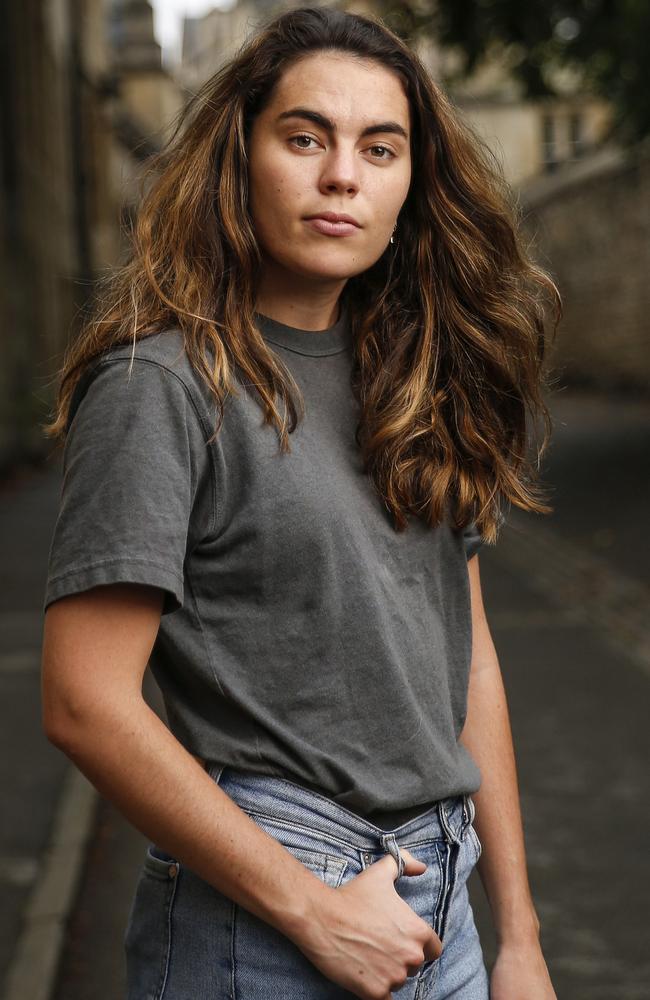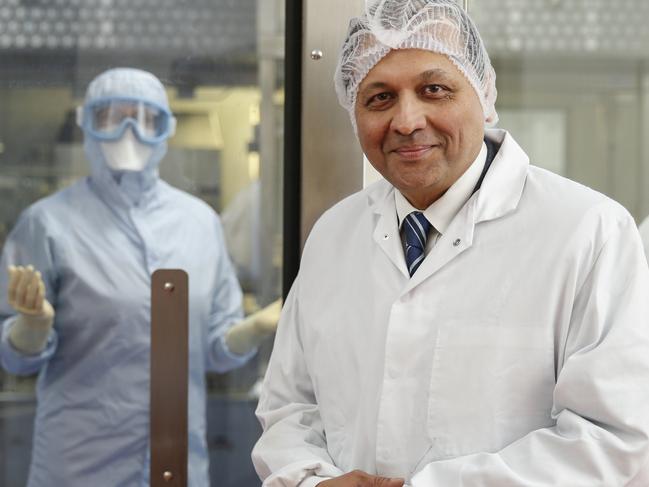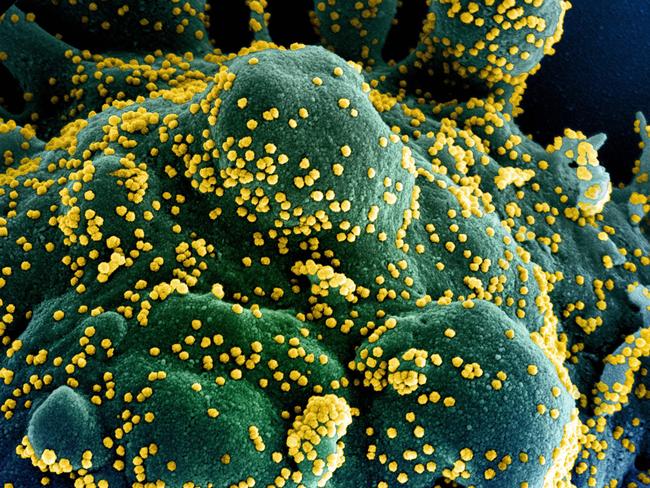Australian woman Sophie Rose wants to join human challenge trial for COVID-19 vaccine
Australian woman Sophie Rose is calling to be deliberately infected with the deadly coronavirus, saying it’s a “reasonable risk” to help save lives.
Coronavirus
Don't miss out on the headlines from Coronavirus. Followed categories will be added to My News.
- Australia may face ‘tragic’ COVID vaccine delay
- COVID vaccine breakthrough as Aussie govt calls for help
An Australian woman is calling to be deliberately infected with coronavirus to help fast-track approvals for a vaccine - all for the greater good.
Sophie Rose, originally from Brisbane, said the small risk of dying from the virus is worth it for a vaccine that could change the world.
She is the co-founder of the 1DaySooner campaign to push for human challenge trials for coronavirus vaccines, starting with Oxford University’s promising candidate.
The trial will be needed because lockdowns and social distancing means that rates of infections in many countries are so low that scientists cannot be sure if a vaccine works or if people were not getting sick because they were staying away from each other.
In a human challenge trial, which can speed up approvals by six months, volunteers receive a vaccine and then are administered with a dose of live coronavirus, while they are monitored under strict laboratory conditions because of the health risks involved.
A human challenge trial of Oxford University’s coronavirus vaccine could start as early as October if it passes an ethics committee review.
Ms Rose, 22, said she was willing to take on the deadly disease.

She said the risk of death from a coronavirus human trial was lower than kidney donation.
“I was thinking about this the other day and thinking that I would do that (donate a kidney) for my best friend and that’s benefiting the one person whereas the results from these trials have the potential to benefit hundreds of thousands of people if not more and that seems worth it to me,” she said.
“When I look at everything that’s going on in the world at the moment, we have economic destruction across multiple different countries, we have hundreds of thousands of people dying, other people are sick, none of this is to mention the consistent toll of people’s emotional well being whilst they’re working from home.
“Any contribution that we can make that is of a reasonable risk to help people is what we should be doing.”
Ms Rose graduated Brisbane Girls Grammar School in 2014 and did a science degree at California’s prestigious Stanford University before being accepted to study at the Johns Hopkins Bloomberg School of Public Health.
She was working at Oxford University when the pandemic started but quit her clinical research role to help start 1DaySooner in May.
Human challenge trials for coronavirus have divided the scientific community, with some concerns that the risk of deliberately infecting people was too high given so little was known about the long term effects of the disease.

The United States National Institute of Allergy and Infectious Diseases (NIAID) last week revealed it had started work on making live doses of coronavirus, which was a key milestone in the push for human challenge trials.
However, there were also concerns that the usefulness of the results may be limited because any human challenge trial would likely have participants aged 20-29, so it would be unclear if the results could be replicated in older, more vulnerable people.
Ms Rose said that the benefits of the human challenge trial outweighed the risks and that even if it only proved young people were immune after a vaccination that would still help reopen the economy because they could go back to work.
Almost 300 Australians, as well as Ms Rose, have signed up via 1DaySooner’s websites, which has pledges from 33,000 volunteers from 151 countries.
Australia has yet to sign up to a vaccine contract, but was understood to be in advanced talks with AstraZeneca, the company that is making up to 2 billion doses of the Oxford University vaccine.
MORE NEWS
What’s killing more Aussies than COVID-19 right now
Aussie invents COVID-killing paint
Moshpit ban, new hubs: Changes to live music and sport in 2021
THE WORLD’S REMAINING VACCINE CANDIDATES
Moderna - mRNA-1273
American pharmaceutical company developed a groundbreaking DNA based vaccine, which would be the first of its type if it won approval. Stage 3 trials are underway after successful early trials, which started in March. The vaccine has received $672 million from Operation Warp Speed, a public-private partnership in the United States. Moderna claims it could produce 1 billion doses per year from 2021, if trials were successful and it was approved.
Sinovac - coronavac
A Chinese vaccine already in stage 3 trials, however the number of participants in stage 2 was almost half of those enrolled in the similar Oxford vaccine trial. Antibodies were found in volunteers after 14 days. A study in Brazil is underway, with healthcare workers likely to be enrolled. It is unlikely that Australia would get access, or use, the Chinese vaccine because it would be prioritised for locals first. China’s lack of free press raises concerns about the veracity of its claimed success.

Wuhan Institute of Biological products
Scientists at the origin of the disease are now working to fix it. However, like reports about the original infections, the details coming out remain scant. A press release in June did not reveal the level of antibodies produced. Chinese Government employees have been offered the jab before travelling overseas, according to Bloomberg. A lab has been set up to produce 200 million doses per year, which means its unlikely Australia would get access.
Sputnik 5
Vladimir Putin stunned the world when he announced the approval of Moscow’s Gamaleya Institute of Epidemiology and Microbiology coronavirus vaccine. Scientists across the globe had reacted angrily, saying it was too soon after it was only tested on 76 people. It raises concerns that if it failed, or had adverse reactions, it would be used as propaganda by anti-vaccination activists. One of Putin’s daughters had been inoculated, but in a sign that the whole process was a publicity stunt, the vaccine cannot be used widely until January 1, 2021. That would provide enough time for a stage 3 trial. The vaccine has been approved for use on the elderly and health workers. Philipine president Rodrigo Duterte, known for executing drug dealers, has offered to be a guinea pig. The archipelago will assist in trials and production.
Originally published as Australian woman Sophie Rose wants to join human challenge trial for COVID-19 vaccine

